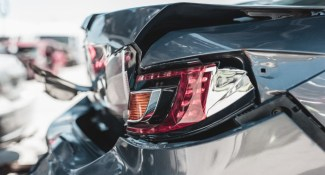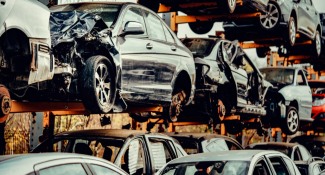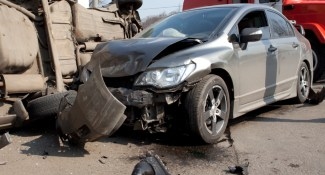A rebuilt title is when the salvaged car is repaired and restored to make it safe to drive.
All new cars come with clean titles, but if a vehicle is severely damaged and declared a total loss, it is issued a salvage title.
While many salvage titled vehicles end up in junkyards and get crushed later, some are given a second life with a rebuilt title.
There are both advantages and drawbacks to buying a vehicle with a rebuilt title.
When the cost of repairing a vehicle damaged in a crash approaches the car's Kelley Blue Book value, car insurance companies often declare it a total loss instead of paying to have it fixed. Sometimes the vehicle is technically repairable, but the insurer chooses not to have it fixed because it will cost too much.
Other times the vehicle will have such significant damage that it can't be repaired to factory standards.
Why should I care if the car has been rebuilt?
It's crucial to know whether or not you're dealing with a salvaged vehicle or junk car because there might be flood damage or other hidden problems which could affect its safety or reliability.
Sometimes the damage is so severe that a vehicle won't operate safely or correctly again. Unfortunately, some unscrupulous car dealers will try to sell a car in this condition without disclosing the information first.
If you need to finance a rebuilt car, most banks will not grant car loans for vehicles that lack clean titles.
Questions to ask about a rebuilt title
What sort of damage did the vehicle sustain?
You can get the answer from the Department of Motor Vehicles (DMV) or similar agencies in the state the car is registered. You should also order a vehicle history report from several companies, such as Autocheck or Carfax. The report requires the car's vehicle identification number (VIN).
__Was there frame damage, and has it been correctly realigned? __
A poorly aligned frame causes undue wear and strain to everything from the brakes and drivetrain to the tires and wheels. It can also fail to protect the occupants appropriately in the event of a severe crash or rollover.
How extensive was the damage, and where were the repairs performed?
It is essential to know that necessary repairs to a rebuilt vehicle were performed correctly and by a reputable repair shop. Make sure the parts used are either from the manufacturer or are quality reproductions and that they have been installed securely and correctly. Unauthorized repair shops can use substandard parts or put parts into the car until they receive the new title, then switch them back out for the damaged ones. Even worse, they might weld large sections of another car onto yours, making it unsafe in a crash.
__How can I tell if a car has been rebuilt appropriately? __
Because there is no foolproof way to know for sure just how well repairs have been done, always have any car with a rebuilt title thoroughly examined by a certified independent mechanic.
Even if the car is not unsafe to operate, skipping this step can result in expensive breakdowns and problems that cost you more to repair than the total original purchase price of the vehicle.
If you're interested in buying a vehicle with such a title, it's also essential to get as much paperwork covering the vehicle's repairs as possible. Look for detailed receipts for the labor and the parts to know that both were up to standard.
Should I avoid buying a car with a rebuilt title?
If a vehicle has been previously damaged badly enough to warrant a salvage title, at first glance, it might seem not very smart to take a chance on it. Severe damage can compromise a car's structural integrity, so even if repairs were comprehensive enough to earn it a rebuilt title, it might not function the way the manufacturer intended it to or even fully comply with government standards.
However, it's not uncommon for a salvaged vehicle to never have had structural damage. If this is the case and if it's been repaired by a reputable shop using factory parts, it can be as safe as an original vehicle with a clean title.
If resale value is important to you, a rebuilt car is not the right used vehicle for you. Because salvage cars with rebuilt titles sell for far less than those with clean titles, you can often snag a great deal on an acceptable vehicle if it was correctly rebuilt.
But remember, it can be difficult to sell such a car later and worth far less than the equivalent vehicle with a clean title. So unless you're planning to keep it for a long time, you may not want a car with a rebuilt title.
According to JD Power and Associates, rebuilt vehicles are worth as much as 40% less than those with clean titles. Keep in mind that the actual or exact market value may be more or less depending on the local market and the type of damage the car sustained that led to it needing a rebuilt title in the first place.
Is the salvage vehicle insurable?
Insurance companies have difficulty placing a value on a car with a rebuilt title. Therefore, they might be hesitant to offer full coverage insurance on a vehicle whose integrity they believe might be compromised, so owners of rebuilt cars may only be able to find liability coverage. Some auto insurance companies may even refuse to cover a vehicle that has a rebuilt or reconstructed title at all.
Suppose you're able to get collision/comprehensive coverage or liability insurance on a car with a rebuilt title. In that case, it might come with a higher price tag and lower level of benefits than you'd get if you insured a car with a traditional title.
If you're seriously considering buying a rebuilt vehicle with a salvage title, contact an insurance company with the vehicle's specific details to see if they would insure it and for how much. Getting an insurance quote and ensuring that you can get insurance coverage is integral to determining whether buying a damaged car is a smart move.
Advantages to buying a rebuilt title car
Cars with these titles usually come with carefully documented repair work. A legitimate seller should provide you with the same paperwork used to obtain the new title. At this point, your mechanic can use the documentation as a guide when inspecting the car and verify that the specified work was performed as described.
If you have a properly documented list of repairs, in some cases, even if the vehicle was salvaged, you may be getting more information than you would have when purchasing another car. A post-salvage used car with a rebuilt title can often be bought for significantly less money than it would have sold otherwise, even with the cost of repairs tacked on.
But vehicles with salvage titles still sell for far less money than their clean-titled counterparts. That's an advantage for potential buyers but less appealing when you go to sell the car. Also, keep in mind that many car dealerships will not accept a car with a rebuilt title as a trade-in.
While buying a used car can be a time-consuming process, it's worth examining every detail, from the car's odometer reading to its title status, to ensure that you're getting the right vehicle.
A used car with a rebuilt title may work out great for you, but regardless of what you decide, at least you will be making a fully informed choice.


